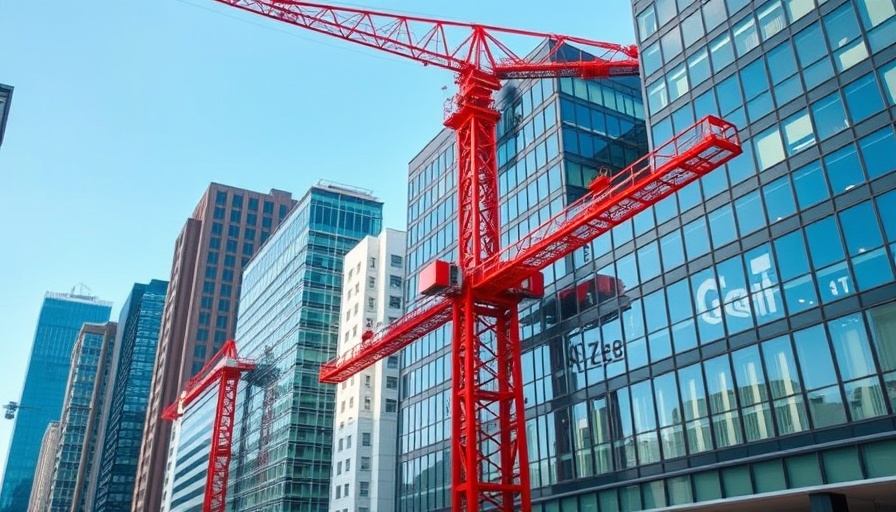
LendingClub's Commitment to San Francisco: A Bold Move
In a notable turnaround, LendingClub has made headlines not just for its innovative fintech offerings but for its robust commitment to keeping its base in San Francisco. The company’s CEO, Scott Sanborn, has announced that after successfully luring employees back to the office post-pandemic, LendingClub is set to purchase a new headquarters in the Financial District, solidifying their long-term presence in the city.
Embracing the Office Culture Post-Pandemic
As companies worldwide navigate the new landscape of hybrid work arrangements, LendingClub stands out as a bold proponent of returning to the physical office. Employees have reportedly embraced this change quite enthusiastically since returning to the office in 2021, creating a dynamic atmosphere that fosters collaboration and innovation. By prioritizing workplace culture, LendingClub has not only improved employee morale but also enhanced overall productivity, which is particularly crucial in the tech sector.
The Impact of Physical Workspaces on Company Culture
Physical presence in the workplace serves more than just dodging Zoom fatigue; it significantly contributes to building a cohesive company culture. In LendingClub’s case, a tangible location where teams can convene allows for organic interactions that are often missing from remote work models. As a result, this has led to constructive exchanges of ideas and rejuvenated team spirit among employees, resulting in improved output.
Financial District's Revival: What It Means for San Francisco
The Financial District witnessed a lull during the pandemic, with many companies downsizing or relocating. LendingClub’s decision signifies a resurgence of optimism in the urban economy, suggesting potential stability for local businesses and commercial real estate. Experts from the San Francisco commercial real estate sector note that LendingClub's move could inspire other firms to reassess their office strategies, possibly resulting in a ripple effect that energizes the Bay Area’s economic activity.
Future Predictions: The Fintech Landscape in San Francisco
Given LendingClub’s expansion, analysts predict a continually growing fintech sector in the Bay Area. With tech innovations at their fingertips and a supportive local government keen on promoting tech growth, the trend among fintech companies setting down roots in the city appears to be one that will persist. This underscores the region’s resilience and the importance of location within the sector.
Counterarguments: The Balancing Act of Hybrid Work Models
While LendingClub and many of its like-minded firms champion a return to office, the hybrid working model has gained traction. Critics argue that flexibility is essential for employee satisfaction and retention. Each model presents its unique challenges and benefits, demonstrating that the future of work is not a one-size-fits-all solution. As businesses weigh their options, the dialogue around remote versus in-office work will remain a vital aspect of company strategy moving forward.
Emotional Resonance: Employee Voices from the Field
Feedback from LendingClub employees resonates positively, highlighting feelings of camaraderie and connection once re-established in the physical space. The sentiment that came through following their return to the office was overwhelmingly optimistic; employees communicated a longing for collaboration and team bonding that can be challenging to replicate in remote shuffles.
Conclusion: The Significance of LendingClub’s Decision
LendingClub's commitment to its San Francisco headquarters is a crucial development not just for the company itself but also for the wider economy. The positive report from employees and the approaching purchase of a prominent office space hints at potential growth and stability in the ever-evolving landscape of financial technology. As the Bay Area continues to navigate the changing nature of work, LendingClub stands as a testament to the benefits of aligning with the city’s economic ambitions.
It's time for other local firms to join in, reconsider office strategies, and invest in the physical places that nurture community and innovation, fostering a robust workplace culture.
 Add Row
Add Row  Add
Add 




 Add Row
Add Row  Add
Add 

Write A Comment